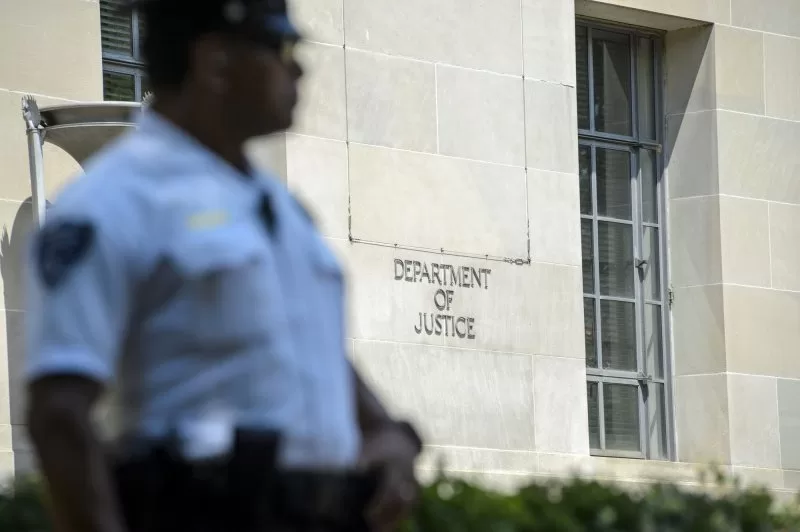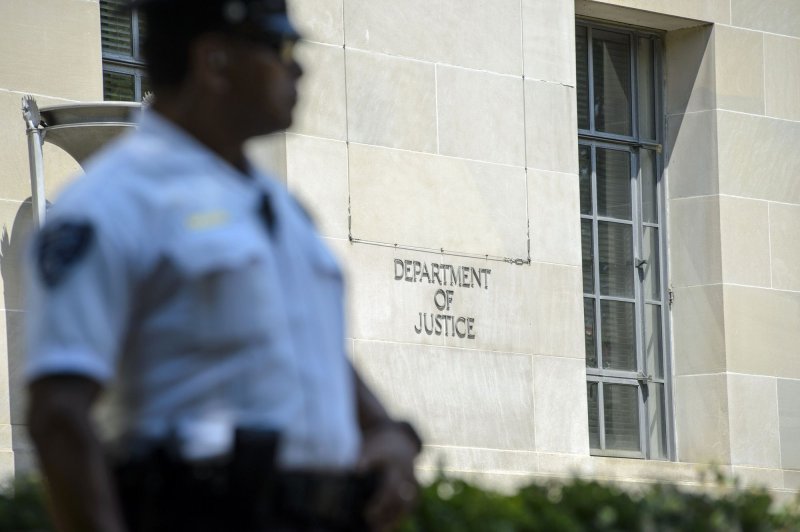A Chinese American was convicted by a New York jury Tuesday on charges stemming from his nearly two decades spying on dissidents for China. File Photo by Bonnie Cash/UPI |
License PhotoAug. 7 (UPI) — A federal jury has convicted a Chinese American academic known publicly for his pro-democracy efforts on charges of spying on Chinese dissidents for Beijing.
Following a one-week trial, the New York jury handed down its verdict against Shujun Wang on Tuesday, finding him guilty on four counts of acting and conspiring to act as an agent of a foreign government.
The 75-year-old naturalized U.S. citizen is a founder of the Flushing, N.Y., pro-democracy Hu Yaobang and Zhao Ziyang Memorial Foundation, whose membership includes Chinese dissidents and critics of the People’s Republic of China.
But prosecutors accused Wang of using his position to collect and transfer information on Chinese dissidents to his native country for nearly two decades.
“The indictment could have been the plot of a John LeCarre or Graham Greene spy novel, but the evidence is shockingly real that the defendant led a double life, pretending for years to be an activist for democracy while he was secretly passing information to the Chinese government,” U.S. Attorney Breon Peace for the Eastern District of New York said in a statement.
“The defendant was a perfect stooge for the PRC, a well-known academic and founder of a pro-democracy organization who was willing to betray those who respected and trusted him.”
Court documents show that since at least 2006 Wang operated under the direction of four Chinese officials of Beijing’s foreign intelligence Ministry of State Security. At their direction, he was tasked with gathering information on those seen as “subversive” to the People’s Republic of China.
Hong Kong pro-democracy protesters, Taiwanese independence advocates and Uyghur and Tibet activists where among those he was tasked with spying on, according to prosecutors, who said Wang communicated with the Chinese intelligence officials over encrypted messing smart phone applications and met with them in person during his trips to his native country.
According to prosecutors, the information Wang collected from private conversations with prominent dissidents, pro-democracy advocates and human rights organization was kept as so-called email diaries that his accomplices were able to access.
In total, some 163 diary entries had been recovered by law enforcement from his residence.
Amid the law enforcement investigation, additional charges were brought against Wang for lying. According to prosecutors, he denied being in contact with the ministry officials over the course of three separate interviews held between 2017 and 2021.
Wang was arrested March 16, 2022, and was charged along with the four Chinese intelligence officials.
When sentenced Jan. 9, Wang faces up to 25 years’ imprisonment.
His co-defendants — Feng He, Jie Ji, Ming Li and Keqing Lu — remain at large.
China has previously rejected the accusations that it was behind the spying of Chinese dissidents. After Wang was arrested, Beijing lambasted the United States for its “unwarranted denigration and smearing against China.”
“The U.S. side should abandon the Cold War mentality and ideological bias, stop groundless accusation and smearing against china and do more to promote China-U.S. relations,” said Zhao Lijian, Beijing’s foreign ministry spokesman.

